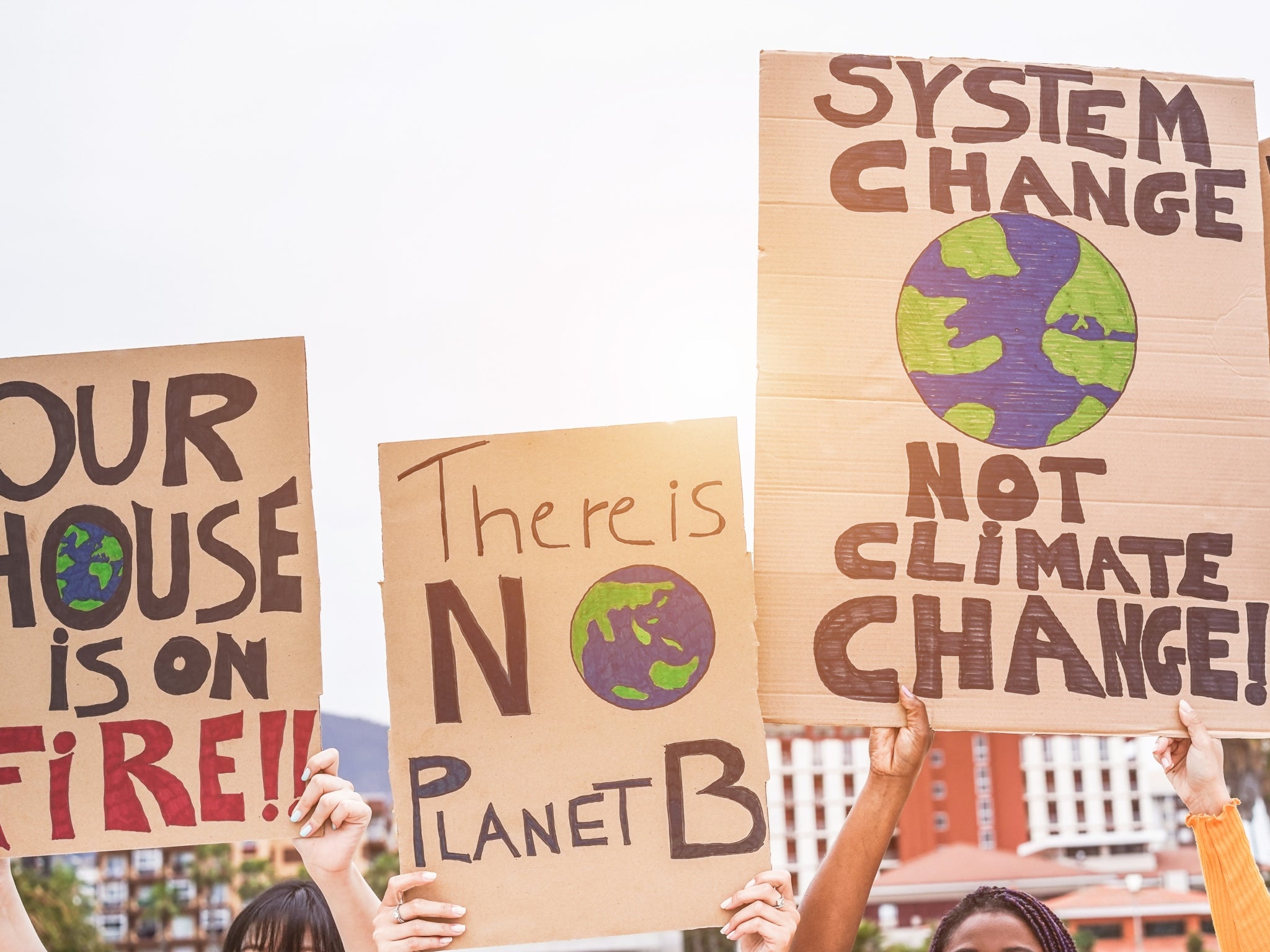‘Global heating’ and ‘eco-anxiety’ among new terms added to Oxford English Dictionary
‘Climate denier’ and ‘climate sceptic’ have also joined the list of terms

The climate crisis has reached the Oxford English Dictionary as a series of eco-minded terms has been added to its pages.
The dictionary has added “climate catastrophe”, “net zero” and “eco-anxiety”, the latter referring to the rise in people feeling anxious due to climate change.
An entry for “global heating” has also been included, after concerns have been raised that “global warming” doesn’t represent the gravity of climate change.
It defines global heating as “often used in preference to global warming to convey more emphatically the seriousness of climate change caused by human activity and the urgent need to address it”.
The dictionary has also seen a selection of sub-entries added, such as “climate crisis” and “climate emergency” alongside terms used to describe global warming naysayers like “climate sceptic”, “climate denier” and “climate denialism”.
“Climate refugee”, “climate justice” and “climate strike” have also been added, the latter referencing the strikes started by Swedish youth activist Greta Thunberg and a secondary definition being used for extreme weather or when the weather is atypical to an area.
The special update to the dictionary, which is dedicated to exploring the new language around climate change, has been launched ahead of Cop26, the 2021 United Nations Climate Change Conference, which will see world leaders meet in Glasgow next month.
“As world leaders come together to seek solutions to the climate change problem, it has been fascinating, if at times somewhat alarming, to delve deeper into the language we use, both now and in the past, to talk about climate and sustainability,” Trish Stewart, science editor at the Oxford English Dictionary, said in a statement.
“The very real sense of urgency that is now upon us is reflected in our language. What happens next depends on so many factors but, one thing we can be sure of is that our language will continue to evolve and to tell the story.”
The update has been introduced after the Oxford English Dictionary began a project earlier this year to review and broaden its vocabulary when it comes to sustainability and climate change.
The popularity of electric vehicles has seen “range anxiety” and “smart charging” added to the dictionary too.
Lexicographers for the dictionary have traced climate-related language back to a magazine article from 1854, where the term “climate change” was used.
It says people were talking about the “greenhouse effect” in the 1980s but this was later replaced by “global warming” and then “climate change”.


Join our commenting forum
Join thought-provoking conversations, follow other Independent readers and see their replies
Comments